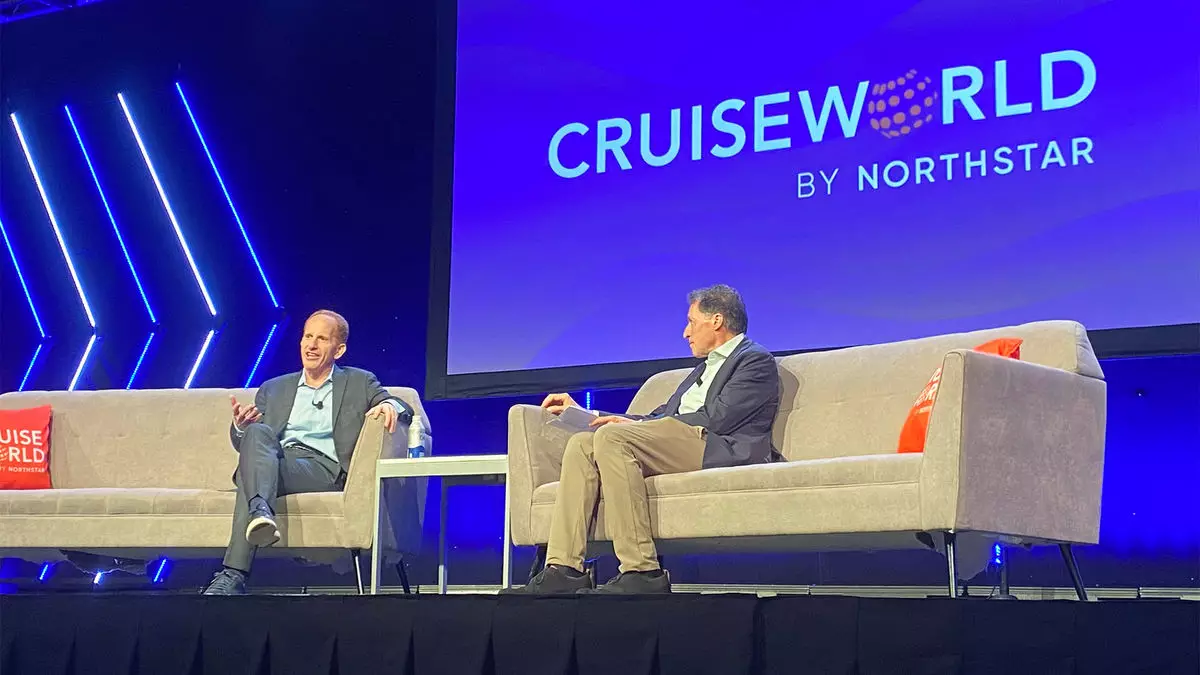In an era where guest satisfaction drives business success, Norwegian Cruise Line Holdings (NCLH) has introduced a transformative concept called ROEx, or Return on Experience. This term was presented during the company’s Investor Day and has since sparked conversations about how cruise lines can better cater to customer preferences. The visionary behind ROEx, NCLH CEO Harry Sommer, elaborated on this philosophy in a recent discussion at CruiseWorld, revealing the evolutionary trajectory of customer experience strategies within the cruise industry.
Contrasting Leadership Approaches
Sommer’s explanation hinges on comparing the leadership styles of his predecessors, Kevin Sheehan and Frank Del Rio. Sheehan, a chief financial officer before becoming CEO, prioritized Return on Investment (ROI), emphasizing financial optimization with a straightforward mantra: “spend a penny here and get two pennies back.” This analytical approach ensured financial metrics were always in check, but it often overlooked the emotional and experiential dimensions of cruising.
In contrast, Del Rio fostered a philosophy centered around creating exceptional guest experiences. While his dedication to delivering “fantastic experiences” was commendable, Sommer pointed out that this sometimes led to efforts that didn’t resonate with guests. For instance, the extravagant sculpture garden onboard the Norwegian Prima, which Del Rio passionately advocated for, exemplified the disconnect; while visually appealing, the broader guest demographic didn’t necessarily find it valuable.
With ROEx, NCLH is bridging the gap between financial performance and guest satisfaction. Sommer articulates a vision that synthesizes the best aspects of Sheehan’s and Del Rio’s philosophies. By focusing on what customers truly desire, NCLH aims to create moments that guests are willing to pay for, ensuring both profitability and satisfaction. This nuanced approach acknowledges the complexity of consumer desires and emphasizes the importance of tailored experiences.
One of the critical strategies NCLH employs is utilizing robust data analytics derived from guest satisfaction scores. Sommer’s proactive inquiry during his first week as CEO—requesting a list of all meals ordered by guests—showcases a transformative approach to leadership. This request revealed a gap in understanding customer preferences that had previously been overlooked. The industry’s forward momentum relies on leaders who embrace a culture of feedback and prioritization of guest experiences.
The implications of ROEx in the cruise industry are profound, as they not only redefine how cruise lines operate but also elevate the overall consumer experience. By applying ROEx across various dimensions—food offerings, entertainment, amenities, destinations, and excursions—NCLH is setting a precedent for a more customer-centric approach. This paradigm shift underscores a growing trend in the hospitality and cruise sectors that prioritizes personal engagement, emotional resonance, and customer feedback as cornerstones of operational strategy.
ROEx marks a significant evolution in the philosophy governing customer experience in the cruise industry. By integrating financial goals with a deep understanding of guest needs, NCLH is poised to enhance the value proposition of cruising. As other companies observe and potentially adopt similar tactics, the landscape of maritime travel may very well change, placing guest experience at the forefront of industry operations.


Leave a Reply